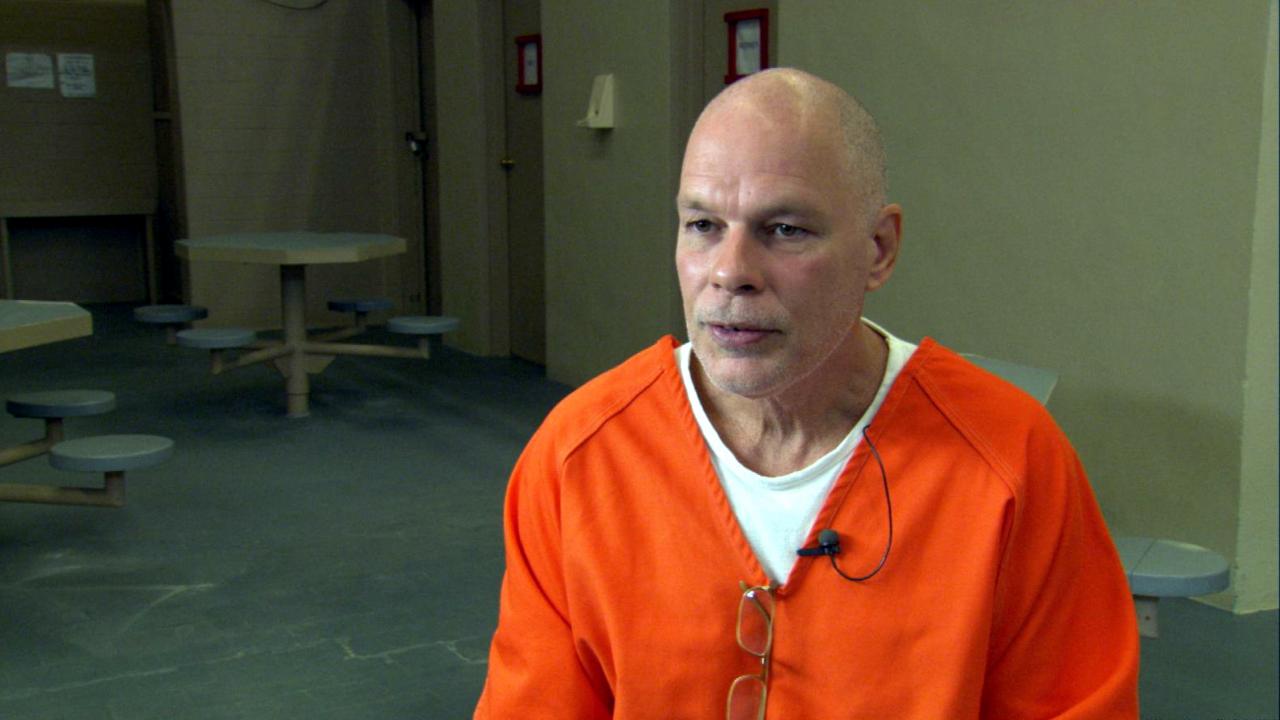Kategorie: Course Material in English
"On Death Row" - Worksheet
One exercise concerning "On Death Row" recommended for school subjects English, German, Philosophy, Politics and Social Studies from senior grade.

Subjects: English, German, Philosophy, Politics, Social Sciences from senior grade
Warning: Using "On Death Row" in the classroom requires sensitivity, awareness and appropriate preparation of the lesson sequence and learning group. The series contains graphic accounts of the most serious crimes. Under no circumstances should traumatized students be confronted with it. Teachers who are in any doubt about their learning group's suitability in this regard should confer with the class teacher or tutor. All students should be told clearly from the outset that they are free to leave the screening whenever they wish in the event that they find material shown unbearable.
Before watching the episiode:
a) Using the latest Zum externen Inhalt: report (öffnet im neuen Tab) by Amnesty International, summarize the current situation with regard to the practice of capital punishment in the US. Read pages 2-4 of the report, which offers an overview of the different legal provisions in the individual federal states, the types of death penalty imposed and carried out and the number of people executed by each federal state. Try to portray the situation as clearly as possible while following these guidelines:
• What was new to you?
• What surprised you most?
• What would you like to learn more about?
b) Come together in class. Exchange views on the information you have just read. Note on the board the five factors you think are most relevant.
c) For his Zum Inhalt: dokumentary series "On Death Row", the German filmmaker Werner Herzog interviewed five convicts who were sentenced to death in the US. Consider what question you would ask in an interview with someone on death row. Explain why.
While watching Episode 3 of the first season:
d) Watch the episode. While watching the episode, jot down notes on the following questions:
• What impression do Joseph Garcias and George Rivas make on you?
• What impression does the interviewer Werner Herzog make on you?
• What questions does Werner Herzog ask?
e) Pay attention to the cinematic means used by focusing on camera movements and angles and sound.
Note: You can join up with a partner and share out these observation duties.
After watching Episode 3 of the first season:
f) Fill out your notes. If necessary, confer with your partner.
g) Come together in class. Together, form a consensus on the main content of the episode. What do viewers learn about the lives of the convicts on death row? For what crime were the two people portrayed sentenced to death? Write down bullet points on the board outlining the two men's chronology.
h) Discuss what aspect of the episode has made the deepest impression on you, or that you found most moving or disturbing. What effects are achieved with camera and sound?
i) Stay in class-discussion. Compare the questions asked by Herzog with your own notes from d). Do the questions go in a similar direction? Or not, and to what extent? What do you think Herzog intends to achieve with his questions? Discuss.
j) Join up with a partner:
1. Together, review the information from exercise a).
2. Visit the website of the Zum externen Inhalt: European Convention on Human Rights (öffnet im neuen Tab) to find out the legal and ethical situation regarding capital punishment in the EU.
k) In another episode of the documentary series Werner Herzog interview a US state prosecutor, who says of a convicted criminal that one should be careful not to humanize the perpetrator. Herzog replies: "I am not humanizing her. I see her as what she is: a human being."
In pairs, compose a brief written statement on this quote. Contextualize the different positions of the state prosecutor and Herzog by referring back to your notes from a) and i). Then adopt an evidence-based stance on how to deal with people accused of murder.
l) Come together as an entire learning group. Present your results from k). Ask each other critical questions.
Optional I – actively opposing the death penalty:
m) Sadly, 56 countries still carry out capital punishment. Organizations such as Amnesty International steadfastly report this, agitate for reform and campaign to have specific death sentences commuted. Research current campaigns, for example on Amnesty's Zum externen Inhalt: website (öffnet im neuen Tab) and find out how you as a learning group can get involved.
Optional II – exercises on trigger warnings:
n) Some episodes of the series by Werner Herzog portray convicted killers whose crimes were especially brutal. Watching these episodes can be very distressing. To warn of potentially disturbing content, trigger warnings have become an established feature in films and social media and even in theaters.
What do you understand by the term "trigger warning"? What trigger warnings are you familiar with? (How) Do trigger warnings affect your media consumption?
o) Listen to the Deutschlandfunk Nova Zum externen Inhalt: report (öffnet im neuen Tab) on trigger warnings. While listening, note the advantages and disadvantages of trigger warnings.
p) In the learning group, discuss whether a trigger warning should be issued before "On Death Row". Consider carefully the various pros and cons discussed in the report.